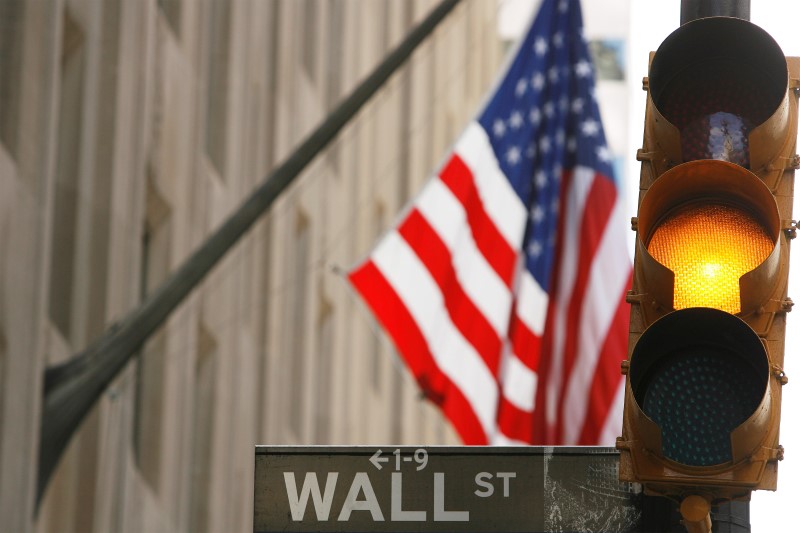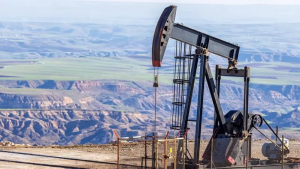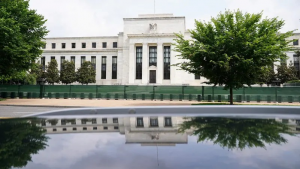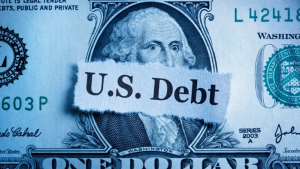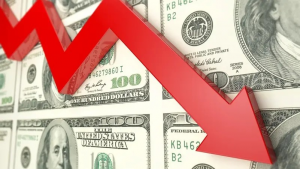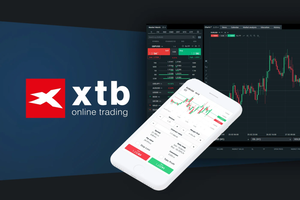US stocks opened lower on Wednesday, as investors gauged fresh inflation data and the outcome of a heated debate between presidential candidates Donald Trump and Kamala Harris.
By 09:55 ET (13:55 GMT), the benchmark S&P 500 had shed 37 points or 0.7%, the tech-heavy Nasdaq Composite had dipped by 29 points or 0.2%, and the 30-stock Dow Jones Industrial Average had slumped by 449 points or 1.1%.
Inflation reading dents 50-basis point Fed cut bets
Headline US consumer prices rose by 0.2% on a monthly basis in August, matching July's rate, but the core figure accelerated slightly, potentially denting the chances that the Federal Reserve will introduce a more aggressive cut to interest rates at its upcoming policy gathering.
The month-on-month headline US consumer price index met economists' expectations, along with the annual figure, which slowed to 2.5% from 2.9% in July.
Meanwhile, so-called "core" consumer prices, which strip out more volatile items like food and fuel, edged up by 0.3% month-on-month, faster than estimates of 0.2%. Year-over-year, the reading came in at 3.2%, in line with forecasts and equaling July's pace.
The inflation figures come as investors widely expect the Fed to bring borrowing costs down from a 23-year high of 5.25% to 5.5% at its next two-day meeting from Sept. 17-18.
Yet uncertainty has continued to cloud over the scope of a potential Fed rate cut, with investors unsure if policymakers will roll out a 25-basis point reduction or a deeper 50-basis point slash. Any signs of stubborn inflationary pressures could persuade the central bank to take a more measured approach to possible cuts.
According to the CME Group's (NASDAQ:CME) closely-monitored FedWatch Tool, the probability that policymakers will reduce rates by a quarter-point has risen to 85%, while the chances of a half-point decrease have fallen to 15%. Prior to the data, markets saw the numbers at 67% and 33%, respectively.
Trump-Harris debate offers few policy details
Republican presidential candidate Donald Trump and Democratic rival Kamala Harris exchanged barbs in a fiery debate on Tuesday, clashing on everything from immigration to the economy.
Heading into the much-anticipated event, which came at a time when Trump and Harris are neck-and-neck in national polls, investors were left with scant details about how either hopeful would approach key topics like tariffs, taxes and regulation.
During the campaign, Trump has pledged to slash corporate taxes and assume a tougher stance on tariffs. Harris, conversely, has vowed to bump up corporate taxes. Analysts have projected that while Trump's plan could help boost company profits, it may also fuel inflation. But they have also noted that Harris's proposal, on the other hand, could dent corporate returns.
On the debate stage, Harris took aim at Trump's policy of imposing high tariffs on foreign goods, arguing that it would effectively be a tax on the middle class. Trump defended the plan, saying it would not lead to higher prices for Americans, and attacked Harris for overseeing a period of elevated inflation during the Biden administration's term.
However, analysts at TD Cowen argued that this was "not a debate about the economy."
"We did not have substantive discussions of the key economic issues including if the White House should play a role in setting interest rates or how tariffs may impact inflation and economic growth," the analysts said in a note to clients.
Bets favored Harris in the immediate wake of the debate, with the current Vice President's odds of winning the ballot increasing to 56% from 53% before the event, according to data from online prediction market PredictIt cited by Reuters.
Oil climbs amid supply worries
Oil prices were higher on Wednesday despite paring back some earlier gains, as traders waited to assess the impact of Hurricane Francine on production in the Gulf of Mexico.
Prices also took some support from industry data showing an unexpected weekly draw in U.S. oil inventories.
But oil markets were nursing steep losses from Tuesday, as disappointing Chinese import data and a cut to the Organization of the Petroleum Exporting Countries’ demand forecast presented a dour outlook for oil markets.
The prospect of a more cautious Fed approach to interest rates were dampening sentiment. In theory, a shallower reduction in borrowing costs could spur on less economic activity and oil demand than a deeper cut.
Brent oil futures expiring in November rose 0.9% to $69.85 a barrel, while West Texas Intermediate crude futures ticked up by 1.3% to $66.58 per barrel by 10:03 ET.

